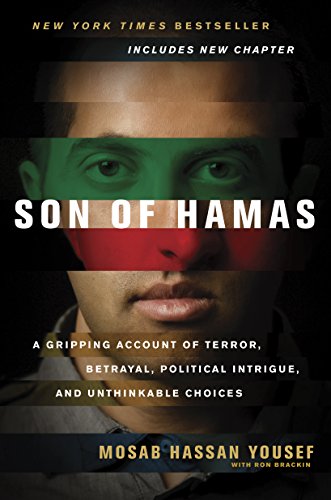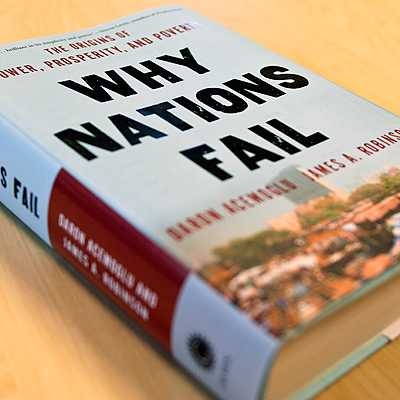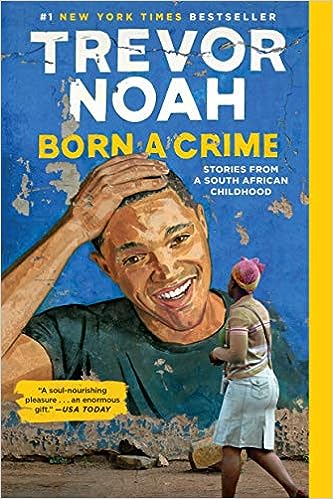By Kadibia
Son of Hamas is a non-fiction book written by Hassan Mosab Yousef, the son of one of the founding fathers of the controversial Palestine group – Hamas.
It is a book that takes us deep into the Palestine mindset and attempts to demystify one of the oldest and never-ending conflicts in world history; the Israeli-Palestinian conflict.
Mosab begins the book with a description of his childhood. We are introduced to his family especially his father and grandfather, two men who are extremely passionate about Islam and for their people. It is this dual passion that would eventually lead his father to form a group whose basic mission is to defend the rights of the Palestinian people against the Jewish people.
The writer articulates the wrath of his people well. Here is a group of people whose way of life and properties are suddenly upturned by an arbitrary declaration that is both incomprehensible and resented. Mosab describes how lives are upturned, and his people are driven from their lands to refugee camps without adequate food, water, and other amenities.
Furthermore, the new settlers are harsh and, enjoying more support from the international community, proceed to oppress the refugees even further. Slowly, bewilderment and resentment grow into hate and hate grows into an overriding passion to drive the people out of the land. It is in this intense atmosphere of pain and fervor that Hamas is born.
Although Hamas begins with a noble goal, in time it only adds another complexity to the matter because as the writer duly noted:
“… For Israel, the PLO nationalists had been simply a political problem in need of a political solution. Hamas, on the other hand, Islamized the Palestinian problem, making it a religious problem. And this problem could be resolved only with a religious solution, which meant that it could never be resolved because we believed that the land belonged to Allah. Period. End of discussion. Thus for Hamas, the ultimate problem was not Israel’s policies. It was the nation-state Israel’s very existence…”
To solve the problem, Israel will have to give up not just part of the territory but everything and that can never happen. But even if by some miracle it did happen, there was no guarantee that it would ultimately lead to peace in the region.
As we read further into the book, we begin to suspect something more different and more repulsive than the occupation.
The leaders of the movement are also corrupt and have begun to use the fanaticism of the people as a means to extract funds from fellow Muslims who are compelled by their faith to assist their brothers.
We are shown the hidden side of Arafat, a popular and powerful leader who is awarded the Nobel Peace but sacrifices the interests of his people for cheap political gain while inciting them to fight against the dangerous and better equipped Israelis.
The writer comes back again and again to the absurdity of bringing sticks and stones to a gun and tanker fight. He warns his brothers about joining in the protests since he knew that was a death trap used by the leaders to incite headlines. In a particularly gruesome scene, the Hamas head leads the protesters against heavily armed Israeli soldiers but peels off at the last moment to a safe spot from where they watch the carnage and bloodbath.
We begin to see other things too. Gross insensitivity is displayed when the leaders begin quarreling bitterly over who would preside over the funeral of the victim of a protest, in front of the new widow. Other widows of fighters and suicide bombers are left on their own; impoverished, desperate, and despised even though their late husbands are being celebrated as heroes.
When the writer is in prison, a Palestinian risks being shot just to escape the torture perpetrated by his fellow Palestinians under the guise of interrogation. And even there, there is hypocrisy because only the weak and defenseless are interrogated.
“…Hamas will hurt itself from within than we would ever do..” says an Israeli intelligence soldier to the writer, “It is not our job to teach Palestinians to love themselves…”
All these force the writer to conclude:
” I asked myself what Palestinians would do if Israel disappeared—if everything not only went back to the way it was before 1948 but if all the Jewish people abandoned the Holy Land and were scattered again. And for the first time, I knew the answer.
We would still fight. Over nothing. Over a girl without a headscarf. Over who was toughest and most important….”
Son of Hamas was an informative read. It explained a lot of mysteries that have bugged me about the Israeli-Palestinian conflict. And it also confirmed certain suspicions that I have always had but could never believe. In discussing the book with a colleague, he warned that I should watch out for the bias of the author. That bias shows sometimes when the author attempts to describe his father as mild and harmless, a martyr who is constantly being harassed and imprisoned innocently. I don’t believe that because over and over again in the book he tells us how his father’s reputation protects him. But how can that be if his father is that tame?
Ask Naija Book Club for this book.



